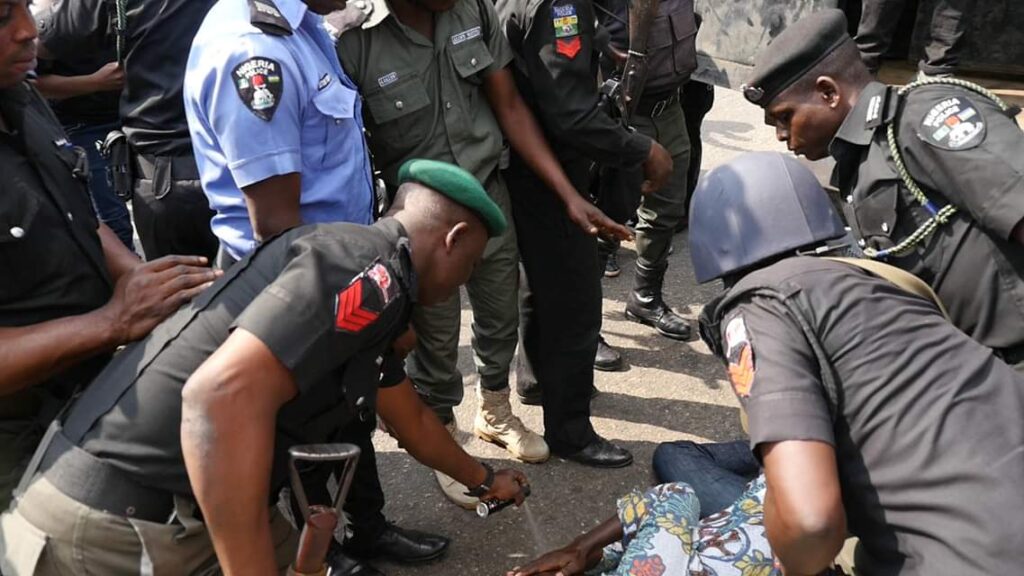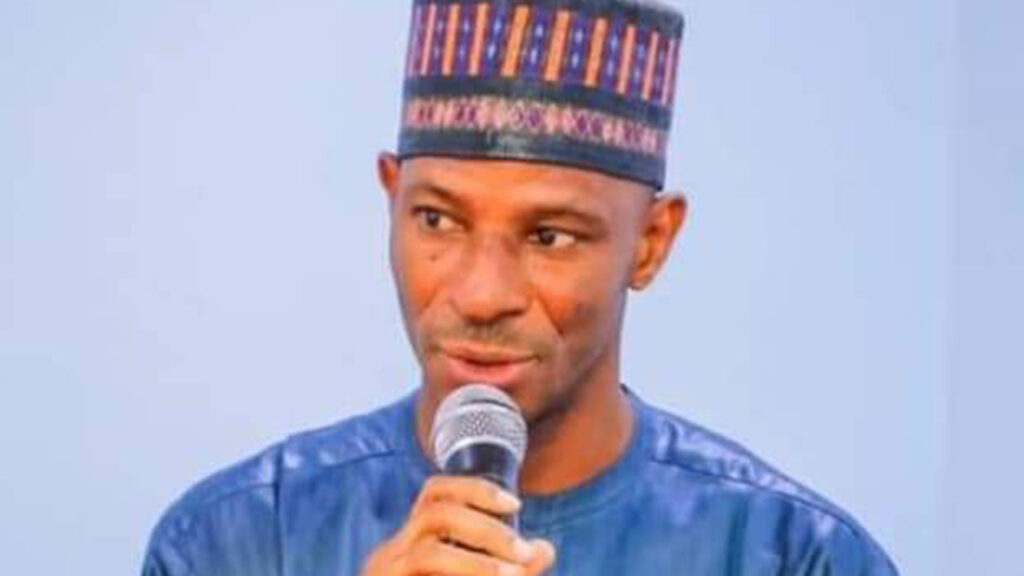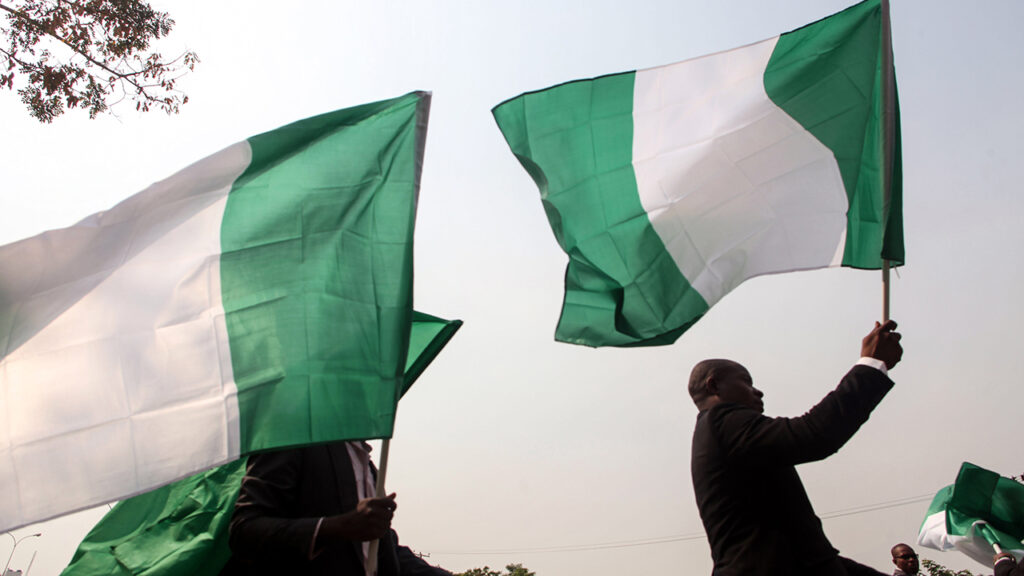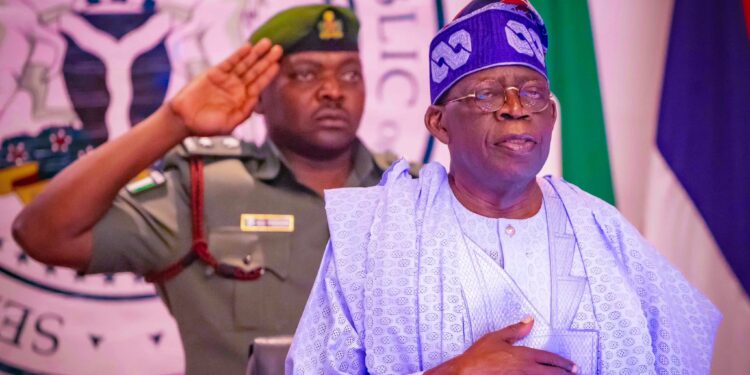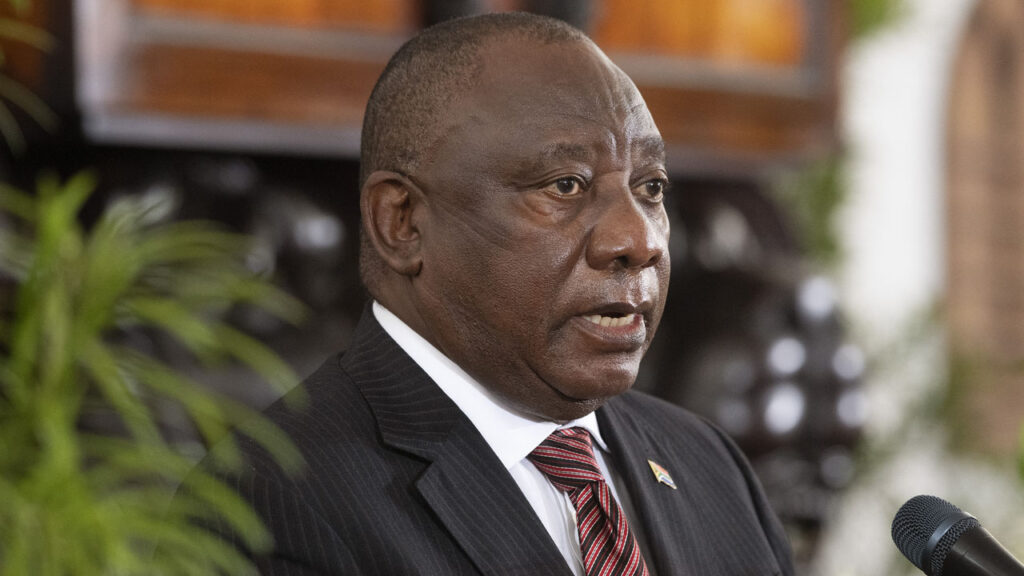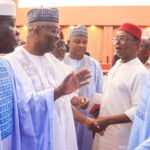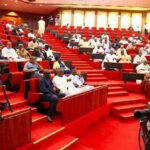 Request in different forms seeking government’s intervention on the preponderance of unexplained wealth in the country is understandable, against the backdrop of yawning gap between the rich and the poor in the country; as well as the flagrant display of wealth suspiciously acquired, in the face of unbridled poverty of the masses. Given the dire imperative to redistribute wealth in the interest of the people, the government will need to confront the challenges in the way of making Nigerians account for their wealth, even as the government seeks to banish multi-dimensional poverty.
Request in different forms seeking government’s intervention on the preponderance of unexplained wealth in the country is understandable, against the backdrop of yawning gap between the rich and the poor in the country; as well as the flagrant display of wealth suspiciously acquired, in the face of unbridled poverty of the masses. Given the dire imperative to redistribute wealth in the interest of the people, the government will need to confront the challenges in the way of making Nigerians account for their wealth, even as the government seeks to banish multi-dimensional poverty.
The Chief Whip of the Senate, Mohammed Ali Ndume, recently called on President Bola Ahmed Tinubu to sign an Executive Order to check rising cases of unexplained wealth in the country. He believes that if Tinubu really wants to fight money laundering and corruption, the people should be tasked to explain the source of their wealth. The lawmaker noted that the issuance of such an executive order would demonstrate the commitment of Tinubu’s administration in fighting corruption. It must be noted that the Executive Chairman of the Economic and Financial Crimes Commission (EFCC), Ola Olukoyede, had similarly urged the President to sign an Executive Order on unexplained wealth.
In principle, it is proper and fitting for Mr. President to issue an Executive Order to strengthen the fight against corruption in Nigeria. An Unexplained Wealth Order (UWO) is a form of disclosure order that can be made against an individual who is either a politically exposed person or a person suspected to have been involved in serious crime. These orders require the person to explain the source of their funds used to purchase specified “property”. “Property”, for the purposes of a UWO, means any kind of asset, including real estate, cash, and intangible assets, such as debts.
The UWO usually specifies certain property of the suspect. It will require the suspect to provide, within a specified period, information in the form of a statement relating to the nature/extent of the suspect’s interest in the property and how the suspect obtained the property, and how they were able to purchase the property. In addition, the UWO can specify additional specific information that is requested in relation to the property. As soon as property or assets are identified as suspected proceeds of crime, investigators may file a request to a court that the property or assets be frozen or seized, especially if there is a concern that the property or assets can be moved or destroyed by the suspect. The evidence from the investigation could also be used to prosecute the suspect in a court of law.
The UWO was introduced in the United Kingdom on January 31, 2018. Since then, several countries, including Australia, Kenya, Mauritius, Trinidad and Tobago, and Zimbabwe, have introduced the UWO as a tool to improve recoveries of the proceeds of crime—particularly kleptocracy and the fruits of corruption by government officials.
In Nigeria today, unexplained wealth has become a practical means of tracing, identifying, investigating, and prosecuting corruption cases. The EFCC has been insisting that suspects of any economic and financial crimes should declare their assets in the course of the investigation. And the agency has successfully secured assets ranging from houses and vehicles to jewellery and money from fraudsters although it still experiences challenges in asset recovery, including the technicalities of prosecuting looted assets and the complexity of recovering funds stashed in foreign jurisdictions.
Therefore, it is proper and fitting for the President to sign the UWO as a tool to fight corruption in Nigeria. In fact, Kenya has been using this tool in recovering millions from former Kenyan public officials who could not explain the source of their wealth in form of cars, cash, and immovable property. However, considering the inefficiency of the EFCC and the Independent Corrupt Practices and Other Related Offences Commission (ICPC) in investigating crimes and prosecuting crime suspects in Nigeria coupled with the country’ imperfect judiciary process, the effectiveness of the UWO in curbing corruption in Nigeria is doubtful. Besides, it is a known fact that the justice delivery machinery in the regular courts is bogged down by a combination of factors ranging from an over-congested cause list, poor attitude of some staff towards work, inadequate infrastructure, corruption of judicial staff, lack of innovative technology in the courtrooms, and the use of undue court technicalities.
Often, the delay in the prosecution of those suspected to have been involved in graft and official corruption results from poor preparation and presentation of cases by the EFCC. It is also a known fact that uncountable charges preferred by the EFCC against some political stalwarts are later dramatically dropped by the same EFCC without genuine reasons. Some of the suspects being publicly paraded by the EFCC on television or on the pages of the newspapers are always beaming with smiles because they know that they would be let off the hook sooner or later by the same EFCC.
More worrisome, however, is the fact that the EFCC has been accused of allegedly partaking in the fraudulent sale of forfeited property. For example, the EFCC was mentioned in the fraudulent sale and disposition of No. 22 Thompson Avenue, Ikoyi, Lagos. In his petition against the EFCC, the Chief Executive Officer (CEO) of a Lagos-based pharmaceutical company alleged that the EFCC and its leadership at that time colluded in the fraudulent sale and disposition of the property worth about N1 billion. It is equally sad that most of the past chairmen of the commission have had to leave office in circumstances laced with suspected irregularities or corruption. That scenario does not put the EFCC in a good stead to spearhead UWO.
Not infrequently, corrupt political bigwigs standing trial for high-profile anti-graft cases find a way to obtain seemingly dubious court injunctions to impede their prosecution in court. Distressingly, some senior lawyers, who are supposed to be officers in the temple of justice, throw decorum and professional ethics overboard to collude with some state prosecutors to defeat justice in many high-profile cases.
Therefore, the Federal Government should devise ways to strengthen the EFCC and the ICPC to carry out their prosecution duties effectively. The main issue affecting the anti-graft war in Nigeria is not a lack of laws; there are sufficient laws. The main problem is the enforcement of these laws. Therefore, the challenges facing the effective enforcement mechanisms of laws in Nigeria should be addressed.
Mechanisms for holding law enforcement agencies and personnel accountable for their actions are essential to maintain public trust and ensure adherence to the rule of law. Continuous training and development of law enforcement personnel are necessary to ensure they have the skills and knowledge required to enforce laws effectively. The Executive should resist temptation to interfere in the judicial process to ensure justice is served. As officers in the temple of justice, lawyers should refrain from engaging in unethical practices that hinder the judicial process.
When these anomalies have been rectified, an executive order on unexplained wealth will find smooth passage in its conception and execution. There is no doubt that the government needs to demonstrate greater commitment to campaign against corruption, if it is to carry Nigerians along; and redirect the proceeds of graft to real nation-building.


